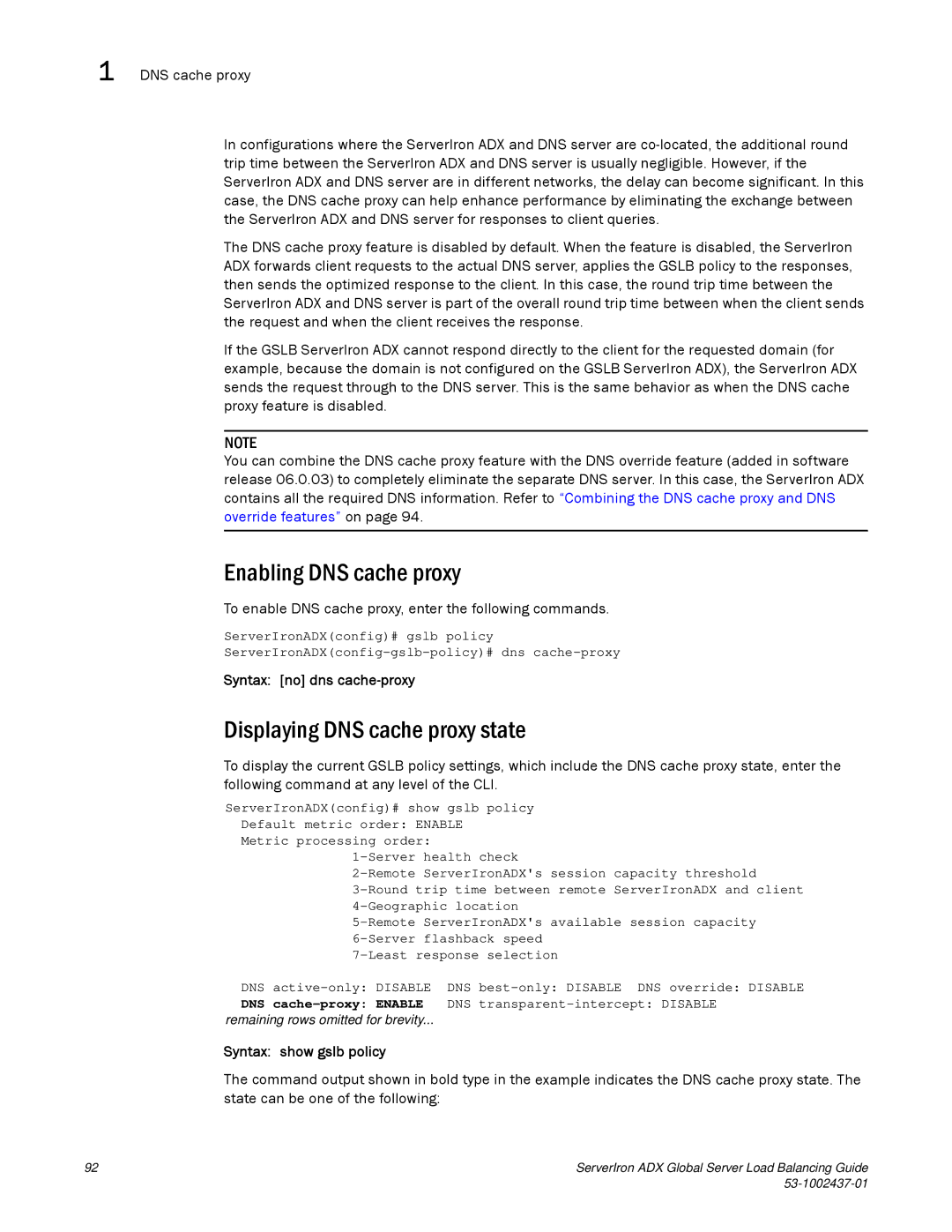
1 DNS cache proxy
In configurations where the ServerIron ADX and DNS server are
The DNS cache proxy feature is disabled by default. When the feature is disabled, the ServerIron ADX forwards client requests to the actual DNS server, applies the GSLB policy to the responses, then sends the optimized response to the client. In this case, the round trip time between the ServerIron ADX and DNS server is part of the overall round trip time between when the client sends the request and when the client receives the response.
If the GSLB ServerIron ADX cannot respond directly to the client for the requested domain (for example, because the domain is not configured on the GSLB ServerIron ADX), the ServerIron ADX sends the request through to the DNS server. This is the same behavior as when the DNS cache proxy feature is disabled.
NOTE
You can combine the DNS cache proxy feature with the DNS override feature (added in software release 06.0.03) to completely eliminate the separate DNS server. In this case, the ServerIron ADX contains all the required DNS information. Refer to “Combining the DNS cache proxy and DNS override features” on page 94.
Enabling DNS cache proxy
To enable DNS cache proxy, enter the following commands.
ServerIronADX(config)# gslb policy
Syntax: [no] dns cache-proxy
Displaying DNS cache proxy state
To display the current GSLB policy settings, which include the DNS cache proxy state, enter the following command at any level of the CLI.
ServerIronADX(config)# show gslb policy Default metric order: ENABLE
Metric processing order:
DNS
DNS
remaining rows omitted for brevity...
Syntax: show gslb policy
The command output shown in bold type in the example indicates the DNS cache proxy state. The state can be one of the following:
92 | ServerIron ADX Global Server Load Balancing Guide |
|
